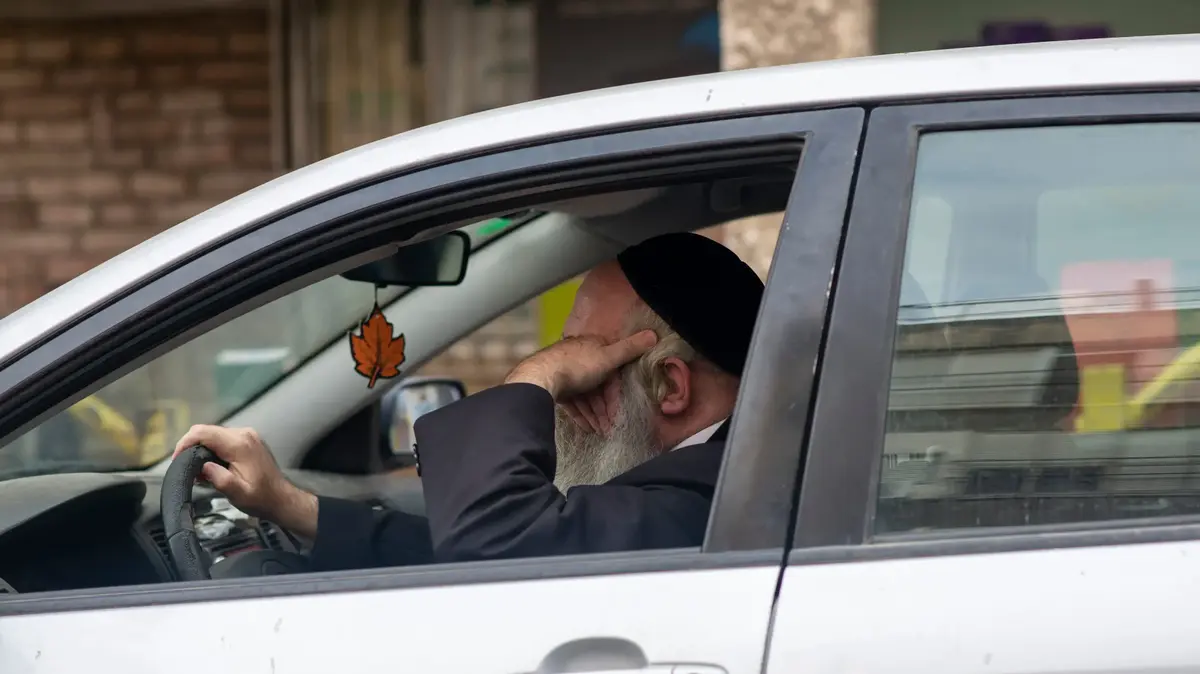There is a big difference between a person who is busy doing the mitzvah of saving souls (Photo: ShutterStock)
Many times in our daily lives halachic questions arise and topical doubts arise.
Rabbi Shai Tahan, head of the Sha'ari Ezra community and head of Beit Erzi HaLebanon, makes the laws accessible to us and answers questions asked in the Beit Midrash and outside of it.
And this week: a doctor who has to travel on Shabbat, should he be afraid and remove his cap?
Question
:
I have an interesting question that really bothers me.
I am a doctor by profession and I am often called to the hospital on Shabbat for patients who are in a state of mental control.
Of course then I have to leave my house and quickly go to the hospital.
However, since I live in a city where the majority of Jews live, I always hesitate before I start the journey passing many people if it is better for me to leave the kippah on my head or remove the kippah so that they think I am not Jewish or at least they think I am a Jew who does not observe Shabbat, and thus will not become evil Heaven forbid they see an ultra-Orthodox Jew driving every Shabbat in a car.
Answer
:
Hello to the respected doctor and thank you for the brave question.
Here we found two answers that seem contradictory at first glance in Rabbi Moshe Feinstein's Shu'at Agrot Moshe concerning the removal of the kippa in similar situations, and we will try to learn from there
for your question.
of movies, if they have to remove the kippa in order not to desecrate the name by seeing religious people go to such a place. The rabbi replies that it is indeed a correct opinion if that is his intention. However, he writes that if his intention is to disregard the obligation of the kippa as well, then it is better that he enter the cinema with the kippa And he will not neglect another thing that he is obligated to do. And in a
second answer (Yod 12, Seman 3) the rabbi dealt with those who fail to go to the place where men and virgins dance together.
Is it good for them to remove the kippah so as not to be seen as ultra-Orthodox who go through this terrible breach, or should we not instruct them to go through another prohibition of removing the kippah and walking with their heads uncovered.
The rabbi replied that they simply shouldn't be told to go through another important cultural prohibition of covering the head.
And he explained that Hasbra says that if those who know him see him as a religious man who observes Shabbat and puts on a tefillin and prays without a head covering, they will make the mistake of learning from him that this is indeed the way to behave without wearing a head covering when you want to dance.
And there he ended his words with this language: "And simply, every offense that a person commits in pershasia also includes the sin of blasphemy. And when he commits only one offense, there will only be blasphemy for this offense, and when he then commits another offense, it will be the greatest blasphemy. Therefore, the law permits the prohibition for His
own opinions and imaginations that he thinks he is slighting the blasphemy."
And here in the first answer the rabbi wrote to permit if his intention is not to desecrate the name of heaven, while in his second answer he wrote firmly to forbid it altogether.
And we will look to reconcile the things that will not be contradictory.
If we are to be precise in the wording of these answers, it seems that the rabbi divided between the two paintings.
In the first painting in which he allowed the removal of the kippah, it is about a case where the sinful person goes to a place where he is not known there, and then it is indeed better for him except for blasphemy by removing the kippah. However, in the second answer he dealt with a case where people know that sinful person, therefore if he If he removes his kippah, they will learn from him that when an ultra-Orthodox person is attacked by the urge and commits a sinful and foolish act, he is allowed to discharge the obligation of wearing the kippah from him as well.
According to these two answers, it would seem to say that your question should also be divided into whether you are in a place where the public does not know the traveler, in which case it is better to remove the kippa so that the person is not suspected of breaking the Sabbath, and on the other hand, the traveler in the vicinity of people who know him should then leave the kippa on the head so that they don't teach him to look down on wearing the kippah as well.
But the truth of the Torah is that your case is not similar to the above, since there is a great difference between a person who is busy doing the mitzvah of saving souls, then every seer has an obligation to teach the traveler a right and not to suspect him of being a Shabbat breaker, to the case of those who are attacked by their urge and go to forbidden places to do forbidden things, then there is Divide as we wrote above.
Therefore, it is certainly worth leaving the kippah on your head, and if possible, you should find an original way to advertise that he does not desecrate Shabbat, such as putting a sign on his car that he is a doctor who is occasionally called to a hospital on Shabbat.
David Berger, submitted on behalf of Shuba Israel
Judaism
life itself
Tags
Judaism

